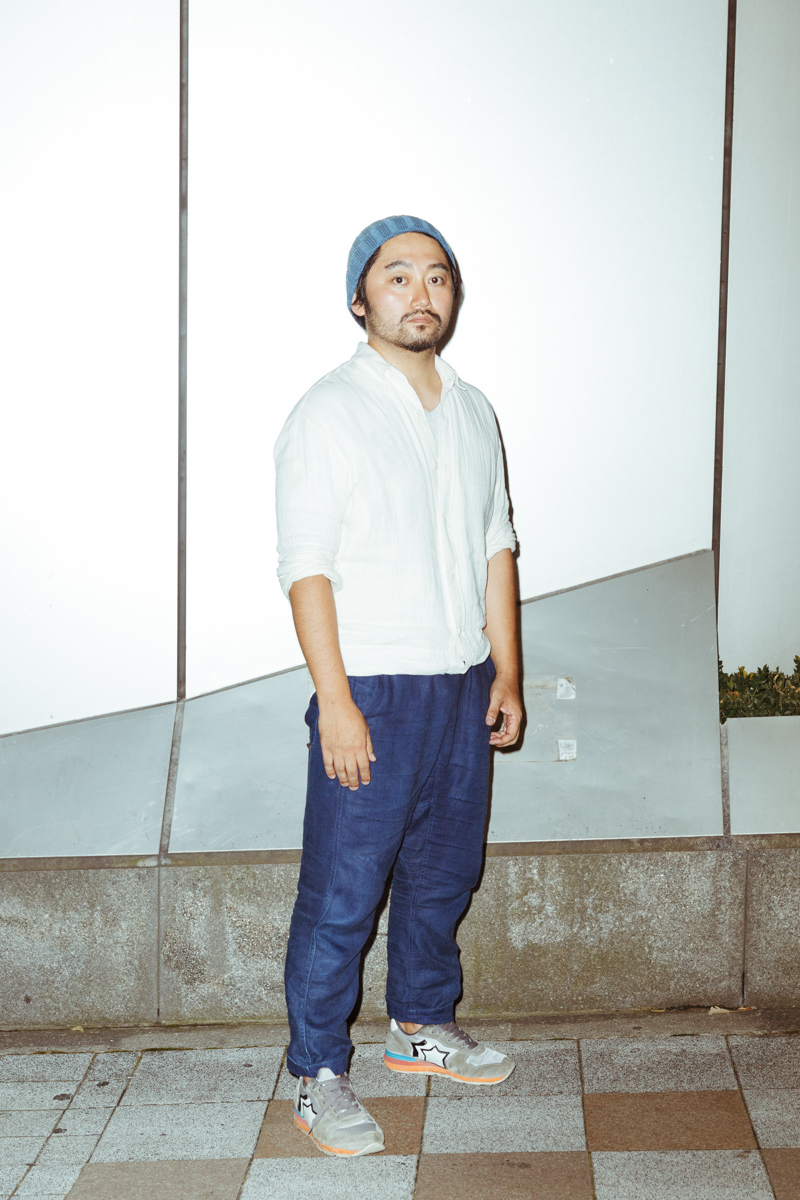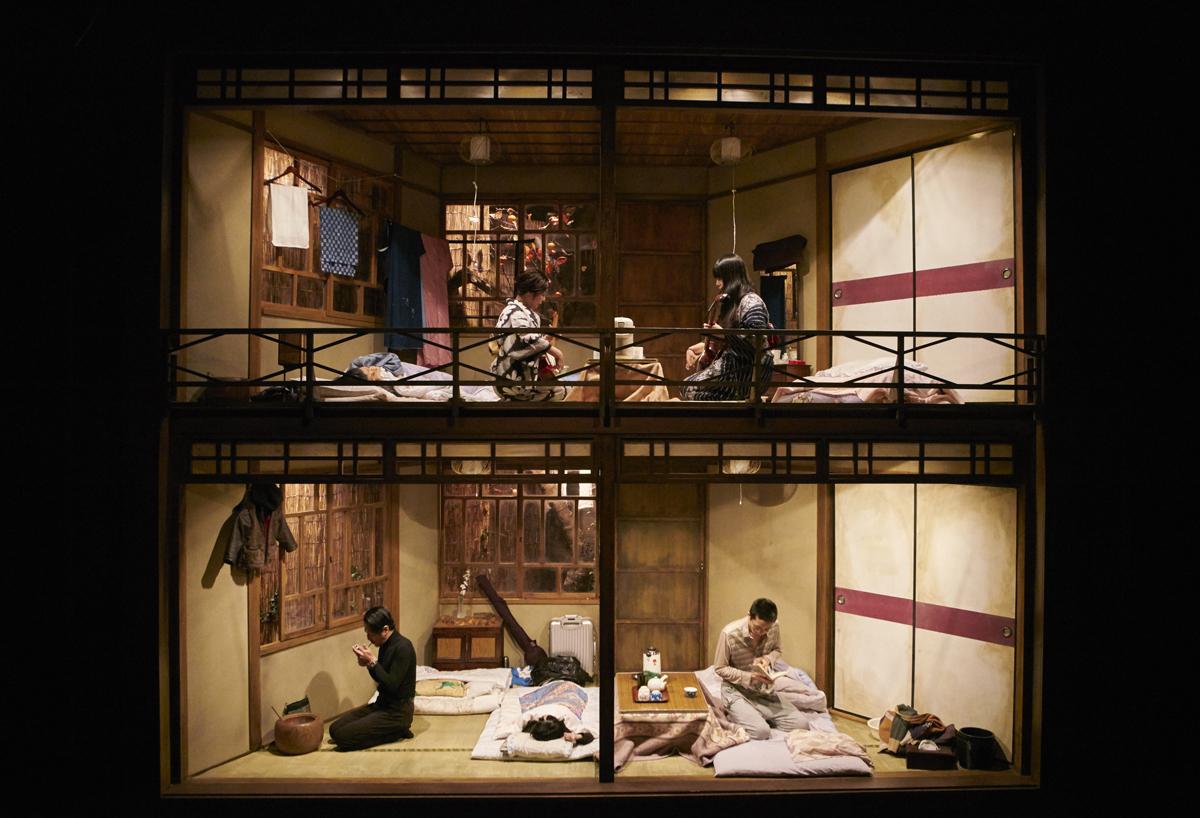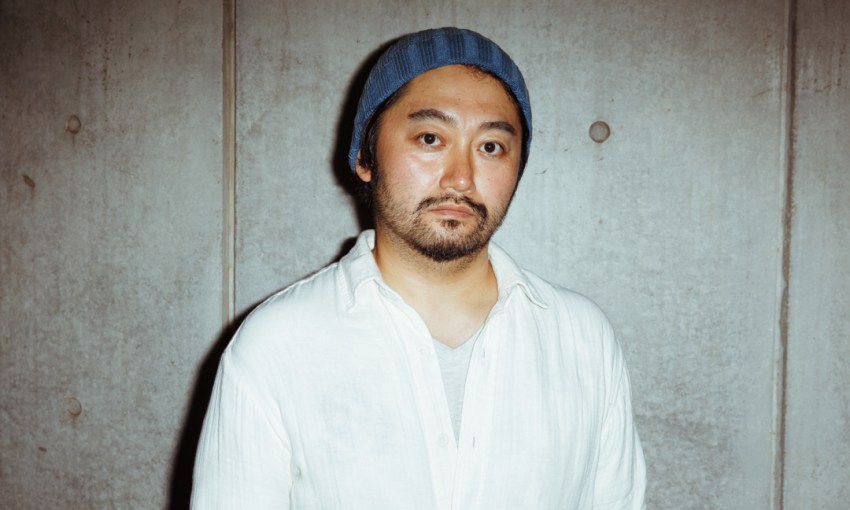Driven by an unknowable internal force, writer and director Kuro Tanino has made The Dark Inn – a magnetic piece of theatre that captures what is lost when an old world succumbs to the force of the new.
What was lost
Kuro Tanino – who in 2015 won Japan’s prestigious Kishida Prize for Drama for his work The Dark Inn – did not set out to be a theatre artist.
CityMag and OzAsia are hosting a special supper with The Dark Inn director Kuro Tanino on October 3.
Tickets are available here and include a seat at the performance, a Q&A between Kuro, CityMag editor Farrin Foster, and publisher Joshua Fanning, a light supper, sake, wine, and other refreshments.
From a long line of psychiatrists, Kuro originally went into the family trade. But even while working for eight years full-time in the medical profession, he was irresistibly drawn toward theatre.
“I actually reformed my apartment into a studio space in Shibuya,” says Kuro. “While I was working as a psychiatrist, for over eight years I was experimenting in that space.

“When I have something I want to create, I really just can’t stop myself – I just start making props and sets.”
Kuro – who writes, directs, and designs all of his productions – describes his creative process as being like “how you make a watch”, where he pulls together different elements from his imagination to form a functioning whole.
For The Dark Inn, which will premiere in Australia as part of OzAsia, this process started when Kuro was making regular trips to the small rural town where he grew up.
These trips inspired a work centred on a traditional Japanese inn to which two mysterious visitors arrive, causing disruption and drawing out the stories and histories of the regular guests.
“My grandfather passed away and my grandmother was bedridden,” says Kuro. “That’s when I started having to go back home on a regular basis. Around the same time the bullet train started to pass through Toyama prefecture.
“Because the train was passing through, a lot of attitudes of people living in a small town started to change and even the dialect was starting to change. With my grandparents passing away at the same time – it seemed like something in my home town was being transformed.
“It seemed that even my memories of childhood themselves were being changed.”
The world Kuro sketches in The Dark Inn captures the feeling of loss that occurs in the moment something old is replaced by the new, and also reflects on the profound personal hollowing-out that takes place when someone close dies.

This photo: Shinsuke Sugino
And while The Dark Inn’s trappings may seem surreal, Kuro explains that the old inn and its characters are actually true to the historic reality of rural Japan, but he has defined their role in the play in an unusual way.
“There were people like this in the past in these small towns,” says Kuro. “And this isn’t just an inn. These Japanese-style inns they used to have in the past are actually free and for local people. It actually harkens back to a more egalitarian time in Japan.
The Dark Inn will have its Australian Premiere as part of OzAsia. It is showing at Her Majesty’s Theatre on October 3 & 4.
“The bigger picture of the story is that the inn is a living entity that is itself dying or going into non-existence. It’s like a human in the show – it has its own consciousness.”
Even now his theatre career is established, Kuro is unsure about exposing to an audience the visions that form, unprompted, in his mind and then become works of theatre. But, for audiences, these works offer a rare chance to glimpse the internal machinations of a great mind.




